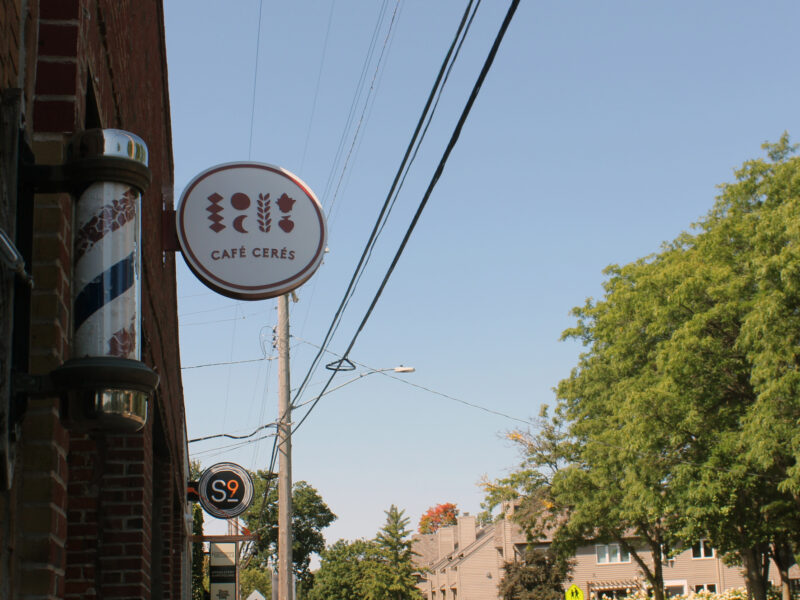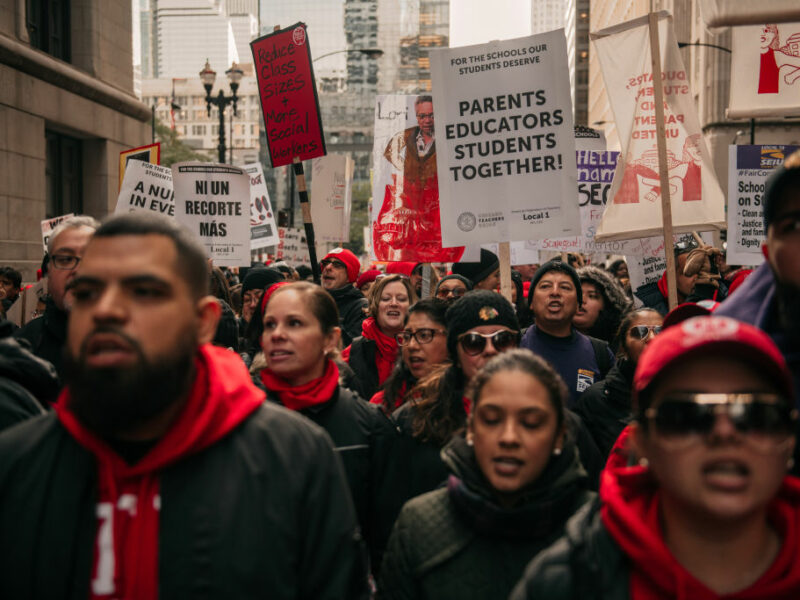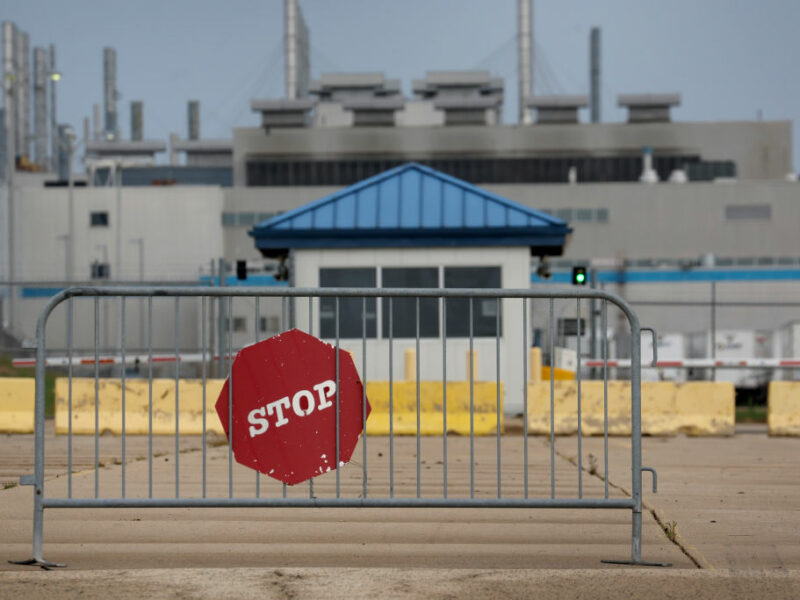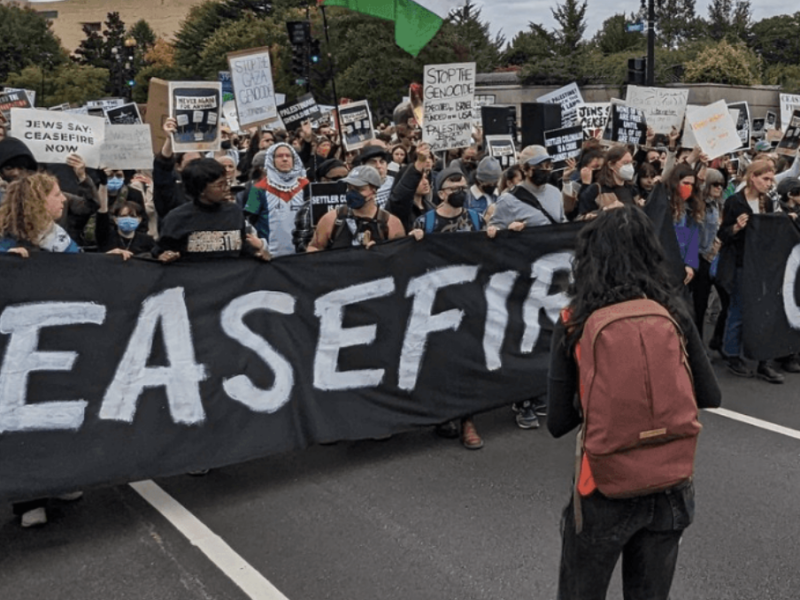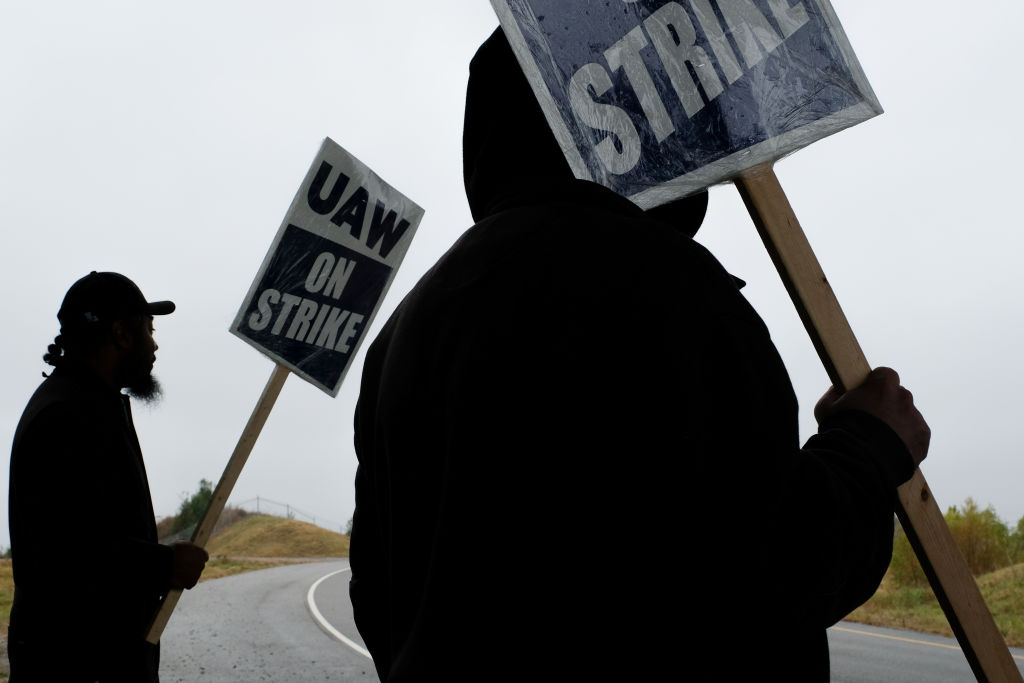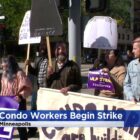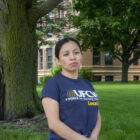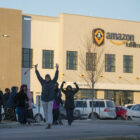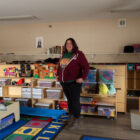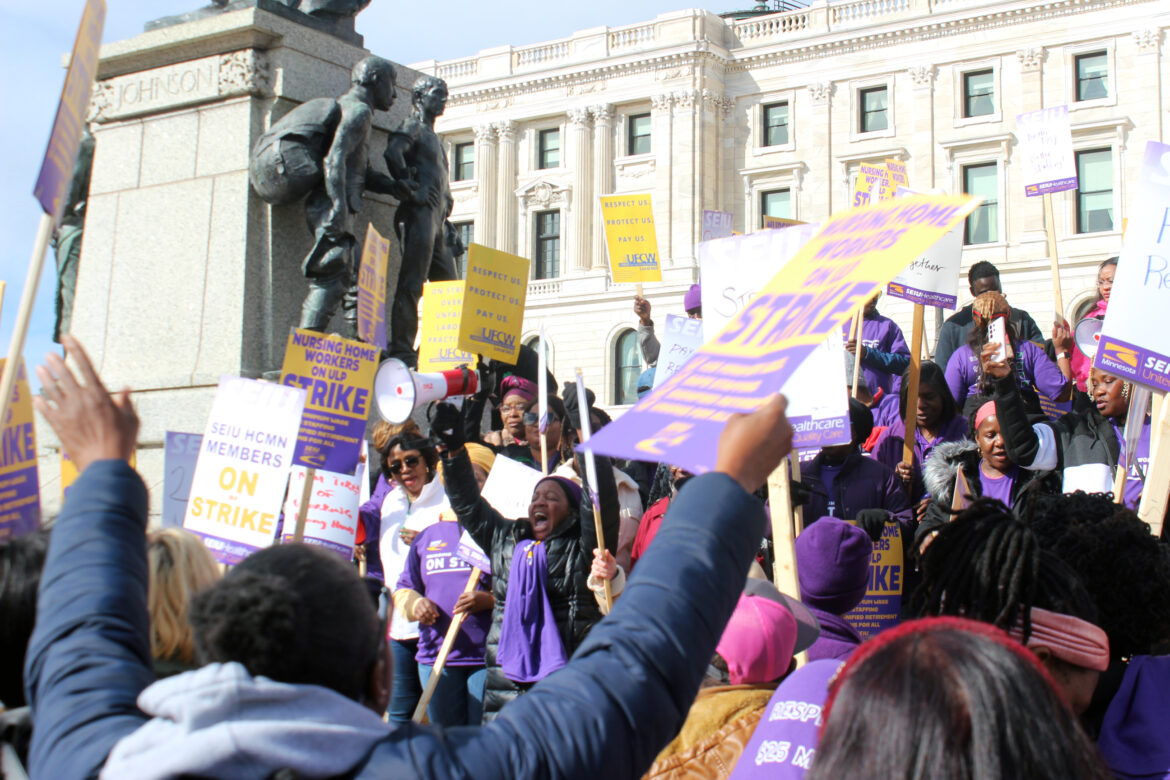Despite the popularity of unions being at a record high, workers in the food service industry face an uphill battle when it comes to fighting for collective bargaining rights. Hospitality unions and workers are trying to change that.
International
The Call Is Out for Mass, Simultaneous Strikes in 4 Years
|
These labor leaders are organizing for 2028. Cooperation across unions and sectors—if carried out on a large scale—would be unprecedented in the 21st century United States.
Minnesota
Minnesota Workers Strike Down Shady Provision That Restricts Their Freedom of Employment
|
This article is a joint publication of Workday Magazine and The American Prospect. Michael Rubke, a desk attendant at La Rive condo complex in Minneapolis, is fighting for a union against a behemoth building management company, FirstService Residential of Minnesota, that has a near-monopoly on high-rise condos in the Twin Cities. It’s been a difficult battle so far. The unionization campaign is “at square one,” the 41-year-old explained over the phone after working an overnight shift. “They’re pretending we’re not there.”
But that lack of formal union representation did not stop Rubke and his colleagues throughout the Twin Cities from fighting for—and winning—statewide legislation this summer that improves the terms of their jobs, by beating back a little-known provision used to erode the job security of contracted workers.
Immigration
Dispatch From a Meat Packing Factory: “If We Unite as Workers, We Have the Power”
|
Read a Spanish-language version of this interview here. Dina Velasquez Escalante is a poultry worker in southwest Minnesota. She spends her workdays inspecting the chicken millions of Americans eat every day. She looks for tumors, stray bones and organs, and removes bile. After six years of hard work and cultivating expertise on almost every position on the line, she’s now in the laboratory testing samples of poultry to ensure the highest quality.
As a union steward with the United Food and Commercial Workers International Union (UFCW) Local 663 at Butterfield Foods in Butterfield, Minnesota, Escalante is also tasked with ensuring her fellow workers receive fair treatment and safety on the line.
Immigration
Informe de una planta empacadora de carne: “Si nos unimos como trabajadores, tenemos el poder”
|
Este artículo también está disponible en inglés. Traducción de María Uhlmann
Dina Velasquez Escalante trabaja en una planta avícola en el sudoeste de Minnesota. Su día de trabajo consiste en inspeccionar el pollo que millones de estadounidenses consumen a diario. Lo que busca son tumores, huesos y órganos, además de retirar la bilis. Luego de 6 años de trabajo intenso, y de adquirir experiencia en casi todos los puestos de la línea de producción, ahora se encuentra en el laboratorio analizando muestras de pollo para asegurar la mejor calidad.
Media
The Great Neoliberal Burden Shift (Part II)- How Corporate America Offset Liability Onto Its Workers
|
The past and present of corporate deflection of responsibility.
Workers
The Great Neoliberal Burden Shift (Part I) – How Corporate America Offset Liability Onto the Public
|
This episode was produced by Citations Needed, in collaboration with Workday Magazine. “Choose the product best suited for baby,” Nestlé urged in a 1970s baby formula ad. “What size is your carbon footprint?” wondered oil giant BP in 2003. “Texting, music listening put distracted pedestrians at risk,” USA Today announced in 2012. These headlines and ad copy all offer a glimpse into a longstanding strategy among corporations: place the burdens of safety, health, and wellbeing on individuals, in order to deflect responsibility and regulation.
Minnesota
“Finally Somebody’s Fighting For Us”: Grocery Store Workers are Fed Up
|
How grocery store workers in Greater Minnesota fighting for better pay and working conditions are sticking together and transforming their union.
Minnesota
Minnesota Unions Push for Bill Extending Unemployment Insurance to Striking Workers
|
Catina Taylor has worked as a special educational assistant for the past 25 years in Minneapolis Public Schools. She’s a member of the Minneapolis Federation of Teachers 59 (MFT 59) and President of the Education Support Professionals (ESPs). In 2022, Minneapolis teachers went on strike for three weeks. Taylor was on the picket line—she remembers not being able to feel her feet in the cold. Although she looks back fondly on the “historic” strike, she adds that it was a financially difficult time for many members.
Going on strike is one of the most powerful tools workers have, but can be a difficult choice for workers to forgo weeks of pay in the hopes of making greater gains for the long term.
Media
Iron Range Childcare Worker on Organizing for Better Care for Children
|
How a childcare worker and mom living and working in Minnesota’s Iron Range would like to see the industry better support workers and children alike.
Across Industries, Minnesota Workers Are Harnessing Their Collective Power
|
Minnesota workers and community groups have worked toward this moment for over a decade. It’s paying off.


